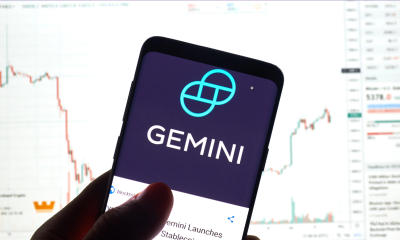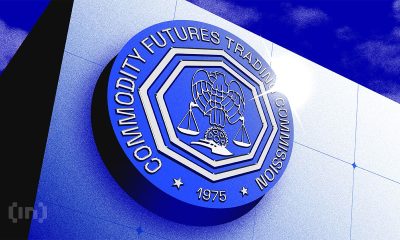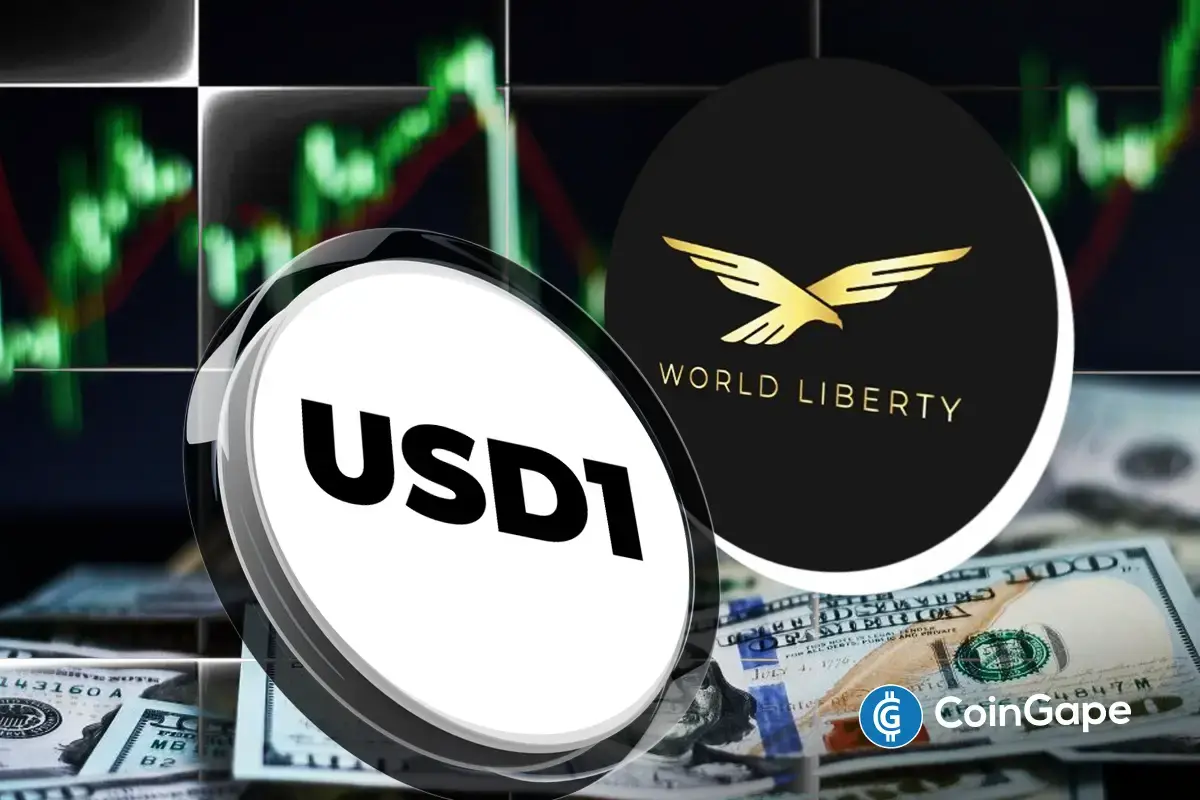Regulation
Russia Plans To Launch 2 Crypto Exchanges & BRICS Stablecoin

Russia is now planning to launch two crypto exchanges, one in Moscow and the other in St. Petersburg. This move underscores the need to boost foreign economic activity (FEA), Moreover, it aims to build an RMB-linked BRICS stablecoin.
The crypto exchange initiative is designed to provide a new platform for digital transactions. However, experts have expressed concerns over the potential limitations and risks associated with the project, particularly in light of international sanctions.
Russia’s Plans On Developing The Crypto Sector
One of the crypto exchanges will likely leverage the infrastructure of the St. Petersburg Currency Exchange (SPCE) to facilitate foreign economic activity, according to a report by Kommersant. Whilst, the other platform is expected to be based in Moscow. However, it remains unclear whether it will be developed on the foundation of the existing Moscow Exchange or as a separate entity within an experimental legal framework.
The primary focus of these exchanges will be the creation and use of stablecoins. For context, stablecoins are a type of crypto that is typically pegged to a reserve of assets, such as a national currency or a basket of currencies. In this case, the Russian government is reportedly considering the development of stablecoins linked to the Chinese Renminbi (RMB) Yuan and the BRICS currency basket.
Hence, this move is aimed at boosting economic cooperation among the BRICS nations (Brazil, Russia, India, China, and South Africa). Currently, BRICS is eyeing dedollarization via crypto and blockchain. However, the development and deployment of a BRICS stablecoin via newly-launched crypto exchanges present a number of challenges.
Oleg Ogienko, CEO of BitRiver, pointed out the technological difficulties in integrating stablecoins into Russia’s blockchain infrastructure. He noted that “stablecoins, due to their legal nature, are more like cryptocurrency.” This could complicate their convertibility, liquidity, and security. Moreover, the complexity of these issues could hinder the seamless adoption of stablecoins in Russia.
Current Regulatory Framework & Challenges For Crypto Exchanges
In terms of regulatory frameworks, Russia currently operates under Federal Law No. 259 “On Digital Financial Assets.” This regulation provides the legal basis for the issuance and circulation of digital assets. However, this legislation does not specifically address the creation or regulation of cryptocurrency exchanges.
Yaroslav Schitzle from law firm Rustam Kurmaev and Partners emphasized the lack of a “clear and unified legal mechanism for the creation and operation of crypto exchanges” under existing Russian regulation. The only relevant regulation available is the Experimental Legal Regime (EPR). This legislation was recently enacted and might serve as the legal foundation for these new cryptocurrency exchanges.
The introduction of these crypto exchanges is expected to be rolled out in stages. Initially, access will be restricted to a select group of users. These include subsidiaries of major exporters and importers, often referred to as “blue chips” in the business world.
Mikhail Uspensky, a member of the expert council on the legislative regulation of cryptocurrencies in the State Duma, weighed in on the matter. He noted it is unlikely that small and medium-sized businesses or individual users will be granted unrestricted access in the early phases. Moreover, he emphasized that “the contours of the future experiment are entirely at the mercy of the regulator.”
Implications Of Global Sanctions
Despite the potential benefits, the project is fraught with significant risks, particularly concerning sanctions. The transparency of blockchain technology could lead to severe consequences if transaction data were to be leaked.
Uspensky warned that if it becomes known that a cryptocurrency was purchased on a Russian exchange, this information could be tracked and flagged as suspicious. This could lead to the blocking of transactions. He cautioned that such a scenario could “significantly ruin the lives” of the participants in these transactions.
Furthermore, it could also affect future holders of these digital assets who may have no direct connection to Russia. Additionally, experts like Nikita Vassev, founder of TerraCrypto, expressed skepticism about the appeal of these domestic platforms.
He argued that “only those who have no other choice will use such an exchange.” Vassev suggested that established, internationally recognized trading platforms will remain the preferred choice for most users unless they are left with no alternatives.
Meanwhile, Russia’s BRICS peer, India, is looking forward to kickstart crypto regulatory efforts. The Indian government is seeking public opinion for better framework. Now, the DEA release is awaited in September-October period, which will lay the basis for digital asset regulation in the country.
Disclaimer: The presented content may include the personal opinion of the author and is subject to market condition. Do your market research before investing in cryptocurrencies. The author or the publication does not hold any responsibility for your personal financial loss.
Regulation
Japan Set To Classify Cryptocurrencies As Financial Products, Here’s All

Cryptocurrency investors in Japan are bracing for impact following a plan to reclassify digital assets as financial products. While the plan has elicited excitement from cryptocurrency enthusiasts in the Far East, the ambitious plan will have to scale several legislative hurdles.
Japan Targets Reclassification Of Cryptocurrencies As Financial Products
According to a report by Nikkei, Japan’s Financial Services Agency (FSA) is inching toward classifying cryptocurrencies as financial products. Per the report, the FSA intends to achieve the reclassification via an amendment to the Financial Instruments and Exchange Act.
Currently, digital assets in Japan are considered crypto assets conferred with property rights and seen as payment means. Under the FSA’s plans, cryptocurrencies in Japan will be treated as financial products in the same manner as traditional financial products.
The FSA says it will adopt a slow and steady approach toward the reclassification, carrying out “a private expert study group” to test the waters. If everything goes according to plan, the FSA will submit the amended bill to Parliament in early 2026.
The classification of cryptocurrencies as financial products will have far-reaching consequences for the local ecosystem. Experts say treating cryptocurrencies as financial products will bring Japan closer to a crypto ETF launch amid a changing regulatory landscape.
Furthermore, the move may lower current cryptocurrency taxation for local investors since existing capital market rules will apply to the asset class.
A Fresh Bill For Crypto Insider Trading Is Underway
Apart from the reclassification, the FSA disclosed plans for new legislation against insider trading. The move flows treating cryptocurrencies as financial products and will strengthen existing investor protection rules.
“It is a direction to establish a new insider trading regulation that prohibits trading based on unpublished internal information,” said the FSA. “We will develop laws to prevent unfair transactions.”
However, Japan’s cryptocurrency scene is heating up to a boil, driven by local and international players. Last week, stablecoin issuer Circle secured approval from the FSA for USDC with top exchanges set to list the stablecoin.
Japan’s Metaplanet has tapped Eric Trump to join its Strategic Board of Advisors as it continues to load up Bitcoin.
Disclaimer: The presented content may include the personal opinion of the author and is subject to market condition. Do your market research before investing in cryptocurrencies. The author or the publication does not hold any responsibility for your personal financial loss.
Regulation
Kentucky Governor Signs Off On ‘Bitcoin Rights’ Bill, Strengthening Crypto Protections


In what is being dubbed a major development in the crypto regulation space, the Governor of the US state of Kentucky, Andy Beshear, has signed the ‘Bitcoin Rights’ bill into law. The law promises to safeguard protections for Bitcoin (BTC) users.
Bitcoin Rights Bill Comes Into Effect
Crypto regulations continue to evolve under pro-crypto US President Donald Trump’s administration. In the latest development, Kentucky has become the newest state to enshrine protections for digital asset users.
In an X post published on March 24, crypto advocacy group Satoshi Action Fund announced that Governor Beshear had signed the much-anticipated Bitcoin Rights bill into law. The post stated:
The right to self-custody, run a node, and use of digital assets is now protected for millions of Americans without fear of discrimination.
The bill was first introduced to the Kentucky House by Rep. Adam Bowling on February 19. According to the bill’s description, it seeks to safeguard users’ rights to use digital assets and self-custody wallets. Additionally, it aims to prohibit local zoning changes that discriminate against crypto mining operations.
The legislation outlines guidelines for running a digital asset node and excludes digital asset mining from money transmitter license requirements. It also clarifies that crypto mining or staking is not considered an offer or sale of securities.
On February 28, the bill passed Kentucky’s House of Representatives with a unanimous vote of all 91 representatives in favor. It later passed the Kentucky Senate on March 13, receiving backing from all 37 senators.
Kentucky’s proactive stance toward cryptocurrencies isn’t new. Earlier this year, the state became the 16th US state to introduce legislation seeking to create a Bitcoin strategic reserve.
Meanwhile, neighboring state Arizona is also joining the crypto movement. A recent X post by Bitcoin Laws revealed that Arizona’s House Rules Committee has passed two Bitcoin reserve bills — SB1373 and SB1025. These bills will now head to a full floor vote.
Renewed Optimism Under Trump Administration
Following Trump’s victory in the November presidential election, cryptocurrency regulations in the US are evolving rapidly, with many states introducing legislation aimed at strengthening their digital asset ecosystems and attracting crypto businesses.
Positive changes in crypto regulations are encouraging industry businesses to expand. For instance, leading crypto trading platform Coinbase recently announced plans to hire 1,000 employees in the US.
The Trump administration has also witnessed several lawsuits being dropped against major crypto entities, including Kraken, Coinbase, Gemini, and others. At press time, Bitcoin trades at $87,399, down 0.2% in the past 24 hours.

Featured Image from Unsplash.com, chart from TradingView.com

Editorial Process for bitcoinist is centered on delivering thoroughly researched, accurate, and unbiased content. We uphold strict sourcing standards, and each page undergoes diligent review by our team of top technology experts and seasoned editors. This process ensures the integrity, relevance, and value of our content for our readers.
Regulation
US SEC Drops Charges Against Hawk Tuah Girl Hailey Welch

Hawk Tuah girl Hailey Welch, known for her association with the controversial $HAWK token, has been cleared of any wrongdoing after a lengthy investigation by the U.S. Securities and Exchange Commission (SEC). The SEC has decided not to press charges against Welch in connection with the rapid rise and subsequent collapse of the meme-based cryptocurrency.
US SEC Investigation Into Hawk Tuah Girl Concludes Without Charges
The SEC had launched an investigation into the $HAWK token after its dramatic price drop. The token, which was linked to Welch’s viral persona, initially saw a market cap surge to $490 million before crashing by over 90%. Investors who were impacted by the crash filed a lawsuit against those behind the project, alleging that the coin had been promoted and sold without proper registration.
Hawk Tuah girl Hailey Welch, who cooperated fully with the investigation, expressed relief after the SEC’s decision. “For the past few months, I’ve been cooperating with all the authorities and attorneys, and finally, that work is complete,” Welch told TMZ.
Her attorney, James Sallah, confirmed that the SEC had closed the case without any findings against her, adding that there would be no monetary sanctions or restrictions on Welch’s future involvement in cryptocurrency or securities.
This Is A Developing News, Please Check Back For More
Disclaimer: The presented content may include the personal opinion of the author and is subject to market condition. Do your market research before investing in cryptocurrencies. The author or the publication does not hold any responsibility for your personal financial loss.
-

 Altcoin24 hours ago
Altcoin24 hours agoEthereum Price Falls Below $1900 As Expert Blames Decline On Network Stagnation
-

 Altcoin22 hours ago
Altcoin22 hours agoGemini Crypto Exchange Announces Rewards For XRP Users, Here’s How To Get In
-

 Market17 hours ago
Market17 hours agoCan Ethereum’s Utility Make a Comeback Against Bitcoin?
-

 Ethereum15 hours ago
Ethereum15 hours agoEthereum Playing Catch-Up? Bloomberg Examines ETH’s Struggles In New Report
-

 Market15 hours ago
Market15 hours agoWhale Leverages $27.5 Million PEPE Long on Hyperliquid
-

 Ethereum14 hours ago
Ethereum14 hours agoEthereum MVRV Ratio Nears 160-Day MA Crossover – Accumulation Trend Ahead?
-

 Ethereum13 hours ago
Ethereum13 hours agoEthereum May Have Hit Cycle Bottom, But Pricing Bands Signal Strong Resistance At $2,300
-

 Market13 hours ago
Market13 hours agoBitcoin (BTC) Whales Accumulate as Market Faces Uncertainty





















✓ Share: